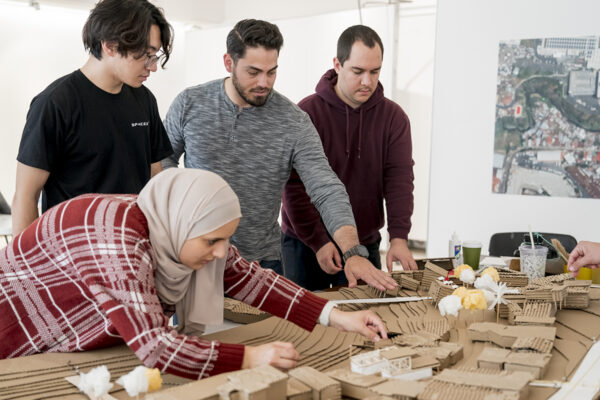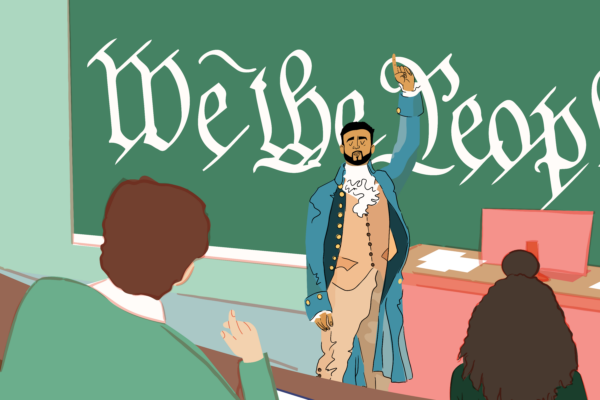
In 1990, 80% of job offers to doctoral recipients in the humanities came from higher education. By 2020, according to the American Academy of Arts & Letters, that figure had dropped to 70%.
It’s still a high number. Across all fields, about 40% of PhD recipients remain in academia. Only recipients in health and medical sciences are so reliant on a single sector, with 59% working in health care.

But for humanists, that concentration fuels “a misperception that we’re not qualified to do other things,” said Stephanie Kirk, director of the Center for the Humanities in Arts & Sciences at Washington University in St. Louis.
“We do still place people in tenure-track jobs,” added Kirk, a professor of Spanish, of comparative literature and of women, gender and sexuality studies, all in Arts & Sciences. “But not all our students. And we have amazing students!”
Next fall, the Center for the Humanities will launch “Humanities at Work: Graduate Internships for the Next Generation.” The program, supported by a $142,800 grant from the National Endowment for the Humanities, aims to prepare doctoral candidates for a wider range of career pathways.
“The idea is to formalize things that our students are really good at — research, communication, work ethic, asking questions — in ways that are legible on a CV,” Kirk said. “These internships will help humanities students to develop new skills and experiences while exploring a variety of professional settings.”

Humanities at Work builds on the center’s Mellon Foundation–funded grant “Redefining Graduate Education in the Humanities” and its NEH-funded “Next Generation” grant. It is also inspired by similar efforts at the University of Iowa, the University of Michigan and the University of Wisconsin-Madison, among others. In recent years, such programs have placed doctoral candidates in museums and artist-run spaces, architectural and engineering firms, broadcast media, community groups, and organizations supporting organized labor and interfaith dialogue.
“These are all real-life examples of humanities graduates and organizations connecting through internships,” Kirk said.
The new program further draws on the Center for the Humanities’ own network of community partnerships, with organizations ranging from The Griot Museum and Sumner High School to 4theVille, Forest ReLeaf and the Repertory Theatre of St. Louis. Recruitment will begin next fall. Kirk said that the application process, though still being finalized, likely will include a short essay as well as interviews with faculty and host organizations. She expects the first cohort to be in place by summer 2025.
“We want students who are really engaged with community work,” Kirk said. “There has to be a willingness to understand and value and learn from the work that our community partners do. There has to be a commitment to St. Louis.
“The opportunities are out there,” Kirk added. “A tenure-track job isn’t the only possible goal, or the only cause for celebration. Hopefully things like this will start to shift the narrative.”
For more information about “Humanities at Work,” visit cenhum.wustl.edu.


